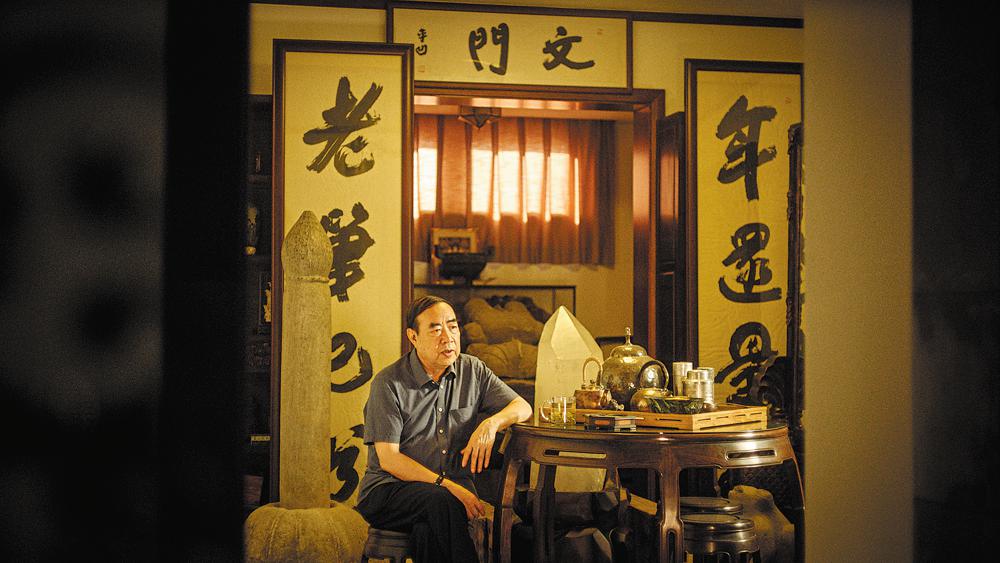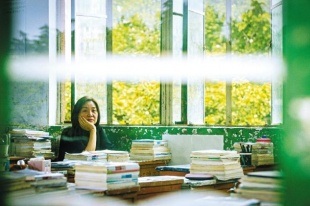Lives of authors
Film director Jia Zhangke's latest documentary tackles contemporary Chinese literature, Xu Fan reports.


The new documentary features a recounting of Ma Feng's life by his daughter, Duan Huifang. Made up of 18 chapters, the film also features interviews with Jia Pingwa, Yu Hua and Liang Hong, three of the country's most prestigious writers respectively representing the intellectual generations of the 1950s, '60s and '70s.
The shooting started in May 2019, when the inaugural Lyuliang Literature Season was held in Jiajiazhuang, the first major literary event in a village that gathered nearly 40 authors, including Mo Yan, China's first winner of the Nobel Prize in literature.
"Artists employ distinctive perspectives to observe China's societal changes with their creative work. I wanted to share their observations through cinema, a more popular medium to reach a wider viewership at home and abroad," Jia Zhangke says.
The shooting went even better than the director expected. In addition to Jiajiazhuang, the crew also traveled to the provinces of Shaanxi and Zhejiang to talk to novelists Jia Pingwa and Yu in their respective hometowns, in an attempt to capture their mood.
"I used to think that writers are shy in front of the camera as most prefer to tell their stories with their pen," Jia Zhangke says, adding that his subjects soon felt comfortable and recalled their personal moments.
Born in Shaanxi in 1952, Jia Pingwa has written novels that reflect the changes in rural China, receiving international recognition with some of his works translated into multiple languages, including English, French and German.
In the documentary, Jia Pingwa recalls an incident. Struggling with the shortage of books in the 1960s, he "stole" two volumes of the Qing Dynasty (1644-1911) classic The Dream of the Red Chamber from a relative's residence, only to be scolded on returning them.





































